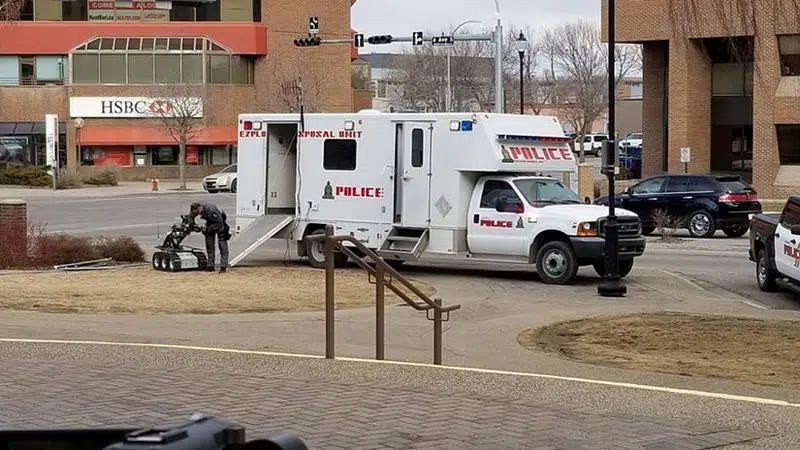
Emergency personnel take part in “mock disaster” bomb drill at city hall
LETHBRIDGE, AB – If you were driving by Lethbridge City Hall Wednesday, you might have noticed several emergency vehicles parked outside, but there is no reason to panic.
Emergency Preparedness Manager with the City Luke Palmer says around 90 personnel took part in a training exercise where they simulated a bomb threat.
“We had two bombs placed in the building itself, which caused an evacuation, so city staff who would normally be used to a fire drill were now presented with a new challenge of actually evacuating for something of a different nature.”
The bomb threat was chosen for this because it is considered “high risk, low probability”, and city hall has a large number of municipal employees in the one facility.


